
Minds in a State of Incredulity
June 1, 2025 Reading time: 5 minutes

Our life flows from one daily routine to the next, filled with actions - directed toward others and toward surrounding us objects. Things… They often define who we are. We buy them, move around and sell them. We rarely stop to appreciate just how extraordinary this journey is - from a single cell, a microscopic droplet of liquid, densely packed with information, into a vast, complex, and conscious multicellular organism.
After becoming thinking beings, we spend much of our lives blind to these glimpses of wonder - too preoccupied with maintaining our biological vessels, too absorbed in keeping them functional: feeding, protecting, and distracting our minds just enough to carry on.
Rarely do we pause and ask: What is all of this? Why are we here?
The Very Moment You Became Aware
May 9, 2025 Reading time: 3 minutes
"I was just a few years old when it happened. Suddenly, everything felt… cold. Not physically, but existentially cold. I sensed that something was wrong-false, or not as it seemed. But I couldn't put it into words or explain it. I looked around and realized something wasn't right. Everything felt unreal.
Later, I have often asked myself: What is this? This 'world'? My curiosity deepened. I tried to recall this feeling of disconnect from reality, and kept questioning. It all seemed unreal-yet somehow, I'm here. That's when I became aware."
Many people share this strange, haunting experience: rare moments in life when, suddenly, the world feels unreal. Your parents or friends begin to look unfamiliar, almost alien. Everything around you seems like a grand theater, with people moving like mechanical actors, and objects reduced to mere props, carefully arranged to keep the performance running smoothly. You feel as if you're watching it all from some distant, unreal dimension-as if life itself is nothing more than a strange game.
Did We Observe a Synchronicity in the Coincidence of Pope Francis’s Death?
April 27, 2025 Reading time: 6 minutes
Recently, we witnessed a strange coincidence: Pope Francis passed away at the age of 88 at 2:35 a.m. (Argentina time) on April 21, 2025. Interestingly, the symbolic sum of the numbers "88 + 2 + 35" coincides with the membership card number 88235 from his favorite soccer team, San Lorenzo de Almagro (Argentina) [1]. This might represent a synchronicity event, but it requires a careful calculation to assess the probability that such a coincidence could occur purely by chance. The method for this kind of probability calculation is outlined in this book [2].
I remind that noticing coincidences in people's lives is not unusual. It can often be explained by the law of large numbers: given the vast number of people and events happening all the time, it is statistically normal for coincidences to occur. However, coincidences become intriguing when they occur within a small, carefully selected group of people chosen independently of any search for coincidences - especially when these individuals are connected through meaningful relationships.
The Hidden Code of the Universe: The Number 6 (six)
February 19, 2025 Reading time: 5 minutes
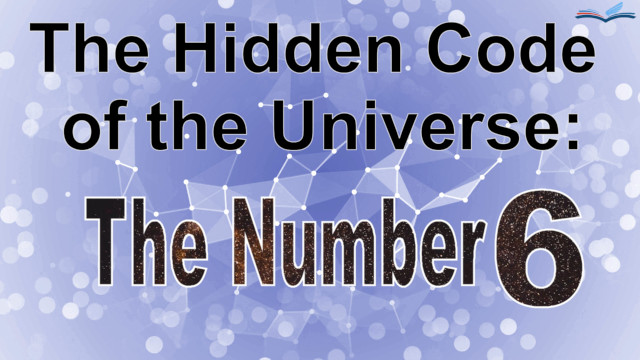
The video story https://youtu.be/ecpH6JcFpfo?si=R9iMuAHZU3vev-ir
By some strange virtue, you find yourself in this universe. It is not only capable of supporting life - allowing you to observe its wonders - but it is also filled with striking coincidences at the very foundation of existence. This world is woven with patterns, regularities, and abstract laws that we discover. All of this points to intricate designs that extend far beyond what is merely necessary for complex life to emerge.
About Time
January 3, 2025 Reading time: 4 minutes
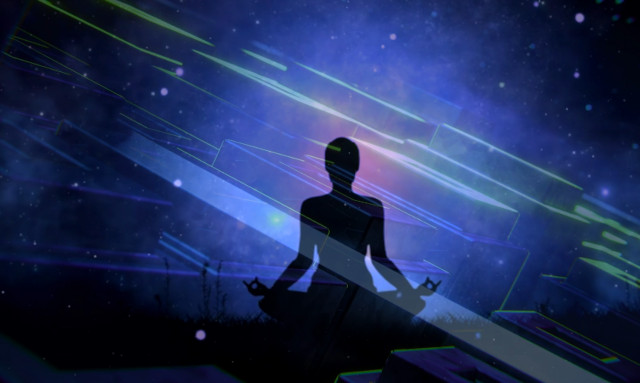
In In the beginning, there was no time, no space. Then, something extraordinary happened. The Big Bang occurred, giving rise to an expanding Universe filled with atoms, molecules, stars, planets, and galaxies.
Time propels us-and everything around us-forward, transforming the present into the past as we move into the future. We comprehend the past through memories and the traces of activity imprinted on material objects.
Have we misunderstood the very nature of existence?
December 26, 2024 Reading time: 8 minutes
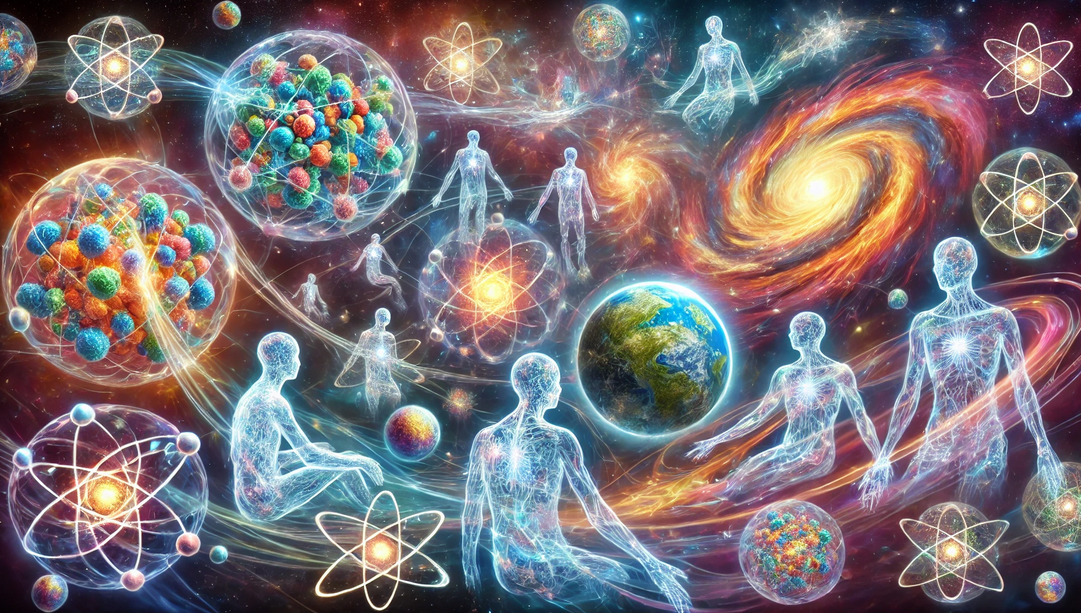
Materialists believe that this world exists independently of us. It consists of atoms, molecules, planets, stars, and galaxies. It just happens that there are billions of humans, who, like other animals, are seen as biological robots. They interact with material objects and one another, moving from place to place. Atop their bodies are computational elements - their brains - which have evolved through natural evolutionary processes as tools for survival. These beings store information within their interconnected cells. When they die, the structured cells that hold the memories of life disappear entirely. New organisms are then born, continuing the biological cycle of reproduction and survival.
But what if this view of the world is completely wrong? What if everything you thought you knew about life and death does not follow this materialistic concept?
Unusual coincidences as design patterns pointing to an intelligent influence
November 18, 2024 Reading time: 10 minutes
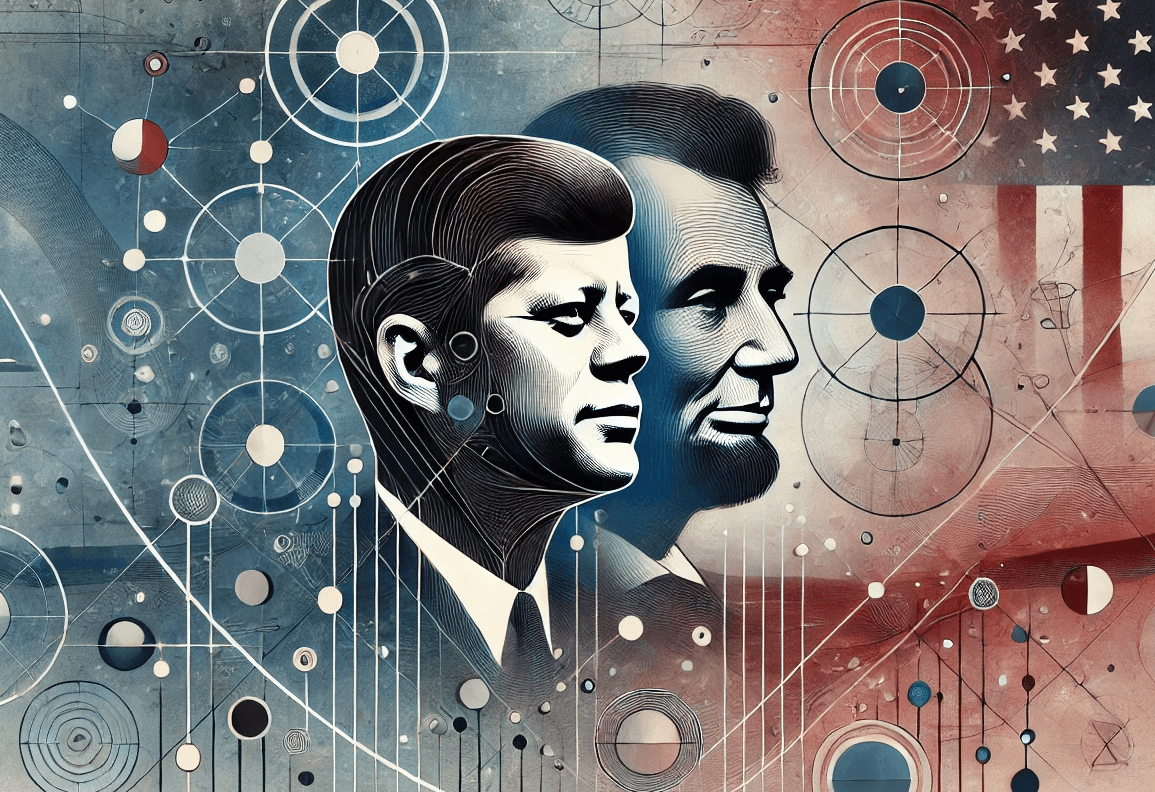
Image: A cascade of coincidences related to JFK and Lincoln assassination
After publishing my book, "The Designed World of Information: Unveiling the Incredible Realm Beyond" [1], several of my colleagues asked me to briefly summarize why I believe that unusual coincidences might offer insights into understanding this world. Indeed, reading a book with over 460 pages is no easy task. So, I decided it would be useful to provide a short summary.
As I mentioned many times in the book, noticing coincidences in people's lives is not particularly unusual. It is simply the law of large numbers. Something is always happening somewhere, and given the sheer number of people, it is perfectly normal to observe coincidences. The effect of coincidences becomes intriguing when one focuses on a small sample of people chosen based on criteria unrelated to coincidences, but who are also connected by meaningful relationships. My book argues that one can build a completely unbiased statistical sample of a group of people, and a simple statistical inference applied to such a group can demonstrate how unlikely certain events are.
Coincidences as an argument for the existence of god
October 30, 2024 Reading time: 9 minutes
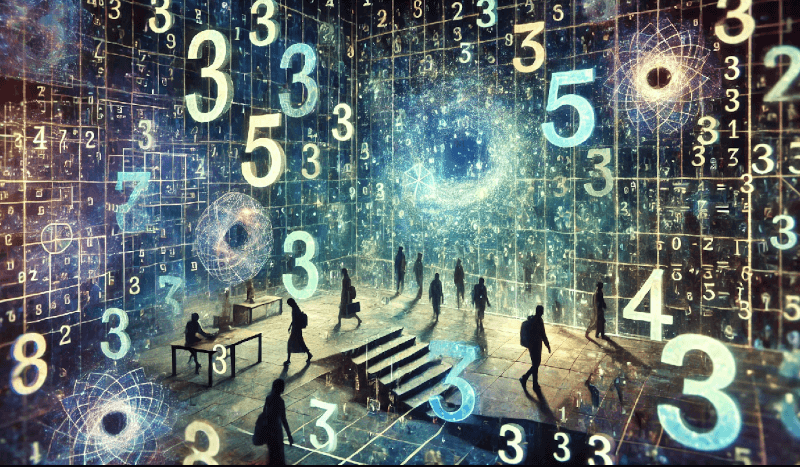
The key question of our lives is the question of the existence of God (or gods, in the case of polytheism). This question can be framed more generally: Are we merely complex, self-operating mechanisms created by random forces, atoms and molecules that are entirely indifferent to human beings?
There is considerable evidence suggesting that we are more than just robots with computational capabilities and that the Universe is not merely a materialistic "thing" created by a quantum fluctuation during the Big Bang, which happened to remain stable long enough to support self-organizing molecules and subsequent evolutionary processes.